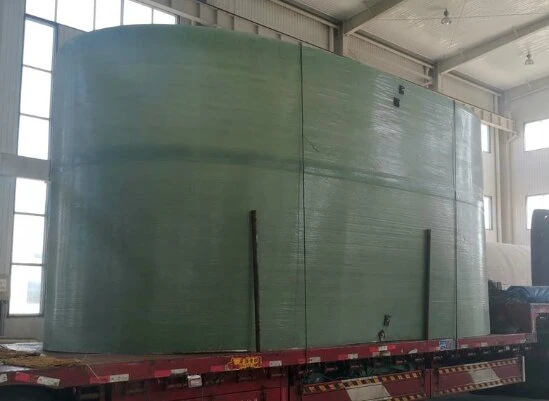
-
 Afrikaans
Afrikaans -
 Albanian
Albanian -
 Amharic
Amharic -
 Arabic
Arabic -
 Armenian
Armenian -
 Azerbaijani
Azerbaijani -
 Basque
Basque -
 Belarusian
Belarusian -
 Bengali
Bengali -
 Bosnian
Bosnian -
 Bulgarian
Bulgarian -
 Catalan
Catalan -
 Cebuano
Cebuano -
 China
China -
 China (Taiwan)
China (Taiwan) -
 Corsican
Corsican -
 Croatian
Croatian -
 Czech
Czech -
 Danish
Danish -
 Dutch
Dutch -
 English
English -
 Esperanto
Esperanto -
 Estonian
Estonian -
 Finnish
Finnish -
 French
French -
 Frisian
Frisian -
 Galician
Galician -
 Georgian
Georgian -
 German
German -
 Greek
Greek -
 Gujarati
Gujarati -
 Haitian Creole
Haitian Creole -
 hausa
hausa -
 hawaiian
hawaiian -
 Hebrew
Hebrew -
 Hindi
Hindi -
 Miao
Miao -
 Hungarian
Hungarian -
 Icelandic
Icelandic -
 igbo
igbo -
 Indonesian
Indonesian -
 irish
irish -
 Italian
Italian -
 Japanese
Japanese -
 Javanese
Javanese -
 Kannada
Kannada -
 kazakh
kazakh -
 Khmer
Khmer -
 Rwandese
Rwandese -
 Korean
Korean -
 Kurdish
Kurdish -
 Kyrgyz
Kyrgyz -
 Lao
Lao -
 Latin
Latin -
 Latvian
Latvian -
 Lithuanian
Lithuanian -
 Luxembourgish
Luxembourgish -
 Macedonian
Macedonian -
 Malgashi
Malgashi -
 Malay
Malay -
 Malayalam
Malayalam -
 Maltese
Maltese -
 Maori
Maori -
 Marathi
Marathi -
 Mongolian
Mongolian -
 Myanmar
Myanmar -
 Nepali
Nepali -
 Norwegian
Norwegian -
 Norwegian
Norwegian -
 Occitan
Occitan -
 Pashto
Pashto -
 Persian
Persian -
 Polish
Polish -
 Portuguese
Portuguese -
 Punjabi
Punjabi -
 Romanian
Romanian -
 Russian
Russian -
 Samoan
Samoan -
 Scottish Gaelic
Scottish Gaelic -
 Serbian
Serbian -
 Sesotho
Sesotho -
 Shona
Shona -
 Sindhi
Sindhi -
 Sinhala
Sinhala -
 Slovak
Slovak -
 Slovenian
Slovenian -
 Somali
Somali -
 Spanish
Spanish -
 Sundanese
Sundanese -
 Swahili
Swahili -
 Swedish
Swedish -
 Tagalog
Tagalog -
 Tajik
Tajik -
 Tamil
Tamil -
 Tatar
Tatar -
 Telugu
Telugu -
 Thai
Thai -
 Turkish
Turkish -
 Turkmen
Turkmen -
 Ukrainian
Ukrainian -
 Urdu
Urdu -
 Uighur
Uighur -
 Uzbek
Uzbek -
 Vietnamese
Vietnamese -
 Welsh
Welsh -
 Bantu
Bantu -
 Yiddish
Yiddish -
 Yoruba
Yoruba -
 Zulu
Zulu
FRP Insulated Tanks for Enhanced Thermal Efficiency and Durable Storage Solutions
Exploring the Benefits of FRP Insulation Tanks
In recent years, the industrial landscape has seen significant advancements in materials and technology, leading to the development of innovative solutions for various applications. One such advancement is the use of Fiber Reinforced Polymer (FRP) insulation tanks. These tanks offer a multitude of benefits, making them a preferred choice for industries requiring efficient storage solutions. This article delves into the characteristics of FRP insulation tanks, their benefits, applications, and the future prospects of this technology.
Understanding FRP Insulation Tanks
Fiber Reinforced Polymer (FRP) is a composite material comprised of a polymer matrix reinforced with fibers, usually glass, carbon, or aramid. When it comes to insulation tanks, FRP is utilized for its excellent mechanical properties, resistance to corrosion, and thermal insulation capabilities. These tanks are engineered to hold various substances, including chemicals, water, and fuels, while maintaining stable temperatures. The intrinsic properties of FRP, such as lightweight and high strength-to-weight ratio, contribute to the overall efficiency and durability of these tanks.
Benefits of FRP Insulation Tanks
1. Corrosion Resistance One of the most significant advantages of FRP insulation tanks is their resistance to corrosion. Unlike traditional materials like steel, which can be prone to rust and degradation when exposed to certain chemicals or environmental conditions, FRP tanks maintain their integrity over time. This characteristic makes them ideal for storing aggressive substances in chemical processing and wastewater treatment industries.
2. Thermal Insulation Thermal efficiency is crucial in many industrial applications. FRP insulation tanks are designed with excellent thermal properties to minimize heat transfer, helping maintain the required temperatures for the substances stored. This insulation capability is particularly beneficial in applications involving temperature-sensitive liquids, like fuels or chemicals requiring specific storage conditions.
3. Lightweight and High Strength The lightweight nature of FRP makes installation and transportation easier compared to traditional tanks made from heavier materials. Despite being lightweight, FRP tanks possess remarkable strength and durability. This means they can withstand considerable pressure and external stresses, reducing the likelihood of failures or leaks.
frp insulation tank

4. Low Maintenance Due to their corrosion-resistant properties, FRP insulation tanks require less maintenance over their lifespan. This not only reduces the operational costs but also lessens the downtime associated with repairs or replacements, leading to greater efficiency in industrial processes.
5. Environmental Impact With increasing awareness of environmental sustainability, industries are turning towards eco-friendly solutions. FRP materials are often manufactured in ways that minimize the impact on the environment. Furthermore, their durability and low maintenance requirements result in less waste generated from repairs and replacements.
Applications of FRP Insulation Tanks
FRP insulation tanks are versatile and find applications across various sectors. They are commonly used in the chemical, oil and gas, water treatment, food and beverage, and pharmaceutical industries. For example, in the chemical industry, FRP tanks are used to store corrosive chemicals securely. In the oil and gas sector, these tanks can hold fuels while minimizing evaporation and heat loss. The food and beverage industry benefits from their cleanliness and hygienic properties, essential for food safety.
Future Prospects
As industries continue to evolve and seek more efficient, durable, and sustainable solutions, FRP insulation tanks are poised for growth. Innovations in material science are likely to result in even more advanced FRP composites, enhancing their properties further. Moreover, the increasing global focus on sustainability and environmental protection will drive the demand for composite materials, making FRP a viable option for future applications.
In conclusion, FRP insulation tanks offer a compelling combination of benefits, including corrosion resistance, thermal efficiency, and low maintenance requirements. Their versatility in various industries enhances their appeal, paving the way for more widespread adoption. As technology continues to advance, the potential for further improvements in FRP materials could revolutionize the way industries approach storage solutions, reinforcing the importance of innovation in a rapidly changing world.









